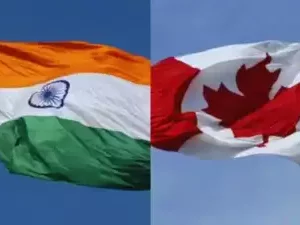In a surprising turn of events, Canada recently pulled out 41 of its diplomats from India following India’s decision to withdraw their diplomatic immunity. This sudden and unprecedented move has sent shockwaves through the diplomatic community and raised questions about the future of Canada-India relations. With the suspension of visa and consular services in major Indian cities like Chandigarh, Mumbai, and Bengaluru, many are left wondering who will be hit the hardest by this unexpected rift.
The diplomatic relationship between Canada and India has generally been characterized by cooperation and mutual respect. However, recent events have tested the strength of these ties. The catalyst for this diplomatic fallout was India’s decision to revoke the diplomatic immunity of several Canadian diplomats operating within the country. This move, seemingly in retaliation for Canada’s own actions, left Canada with little choice but to recall its diplomats.
The consequences of this diplomatic impasse are far-reaching and multifaceted. First and foremost, the suspension of visa and consular services in key Indian cities has created considerable inconvenience for a wide range of stakeholders. Among those likely to be hit the hardest are Indian citizens who had pending visa applications or sought consular assistance for various reasons, such as travel, work, or immigration. The sudden halt in these services has left many in a state of uncertainty and frustration.
Beyond the immediate concerns of Indian citizens, the diplomatic standoff is also expected to have an economic impact. Bilateral trade relations between Canada and India have been growing steadily in recent years. With the sudden withdrawal of diplomats, concerns are rising about the potential disruption to trade agreements, investment, and economic cooperation. Canadian businesses operating in India and Indian companies with interests in Canada may face challenges in navigating this diplomatic storm.
One often-overlooked aspect of diplomatic relations is the impact on educational and cultural exchanges. Canada and India have a long history of collaboration in these areas. Thousands of Indian students pursue higher education in Canadian institutions, while Canadian universities benefit from a rich pool of Indian talent. Cultural exchanges, including arts and entertainment events, have also been important in promoting mutual understanding and goodwill. The current situation could impede these exchanges, potentially affecting the aspirations and dreams of many students and artists on both sides.
The long-term implications of this diplomatic rift are yet to be fully understood. While diplomatic spats are not uncommon in the international arena, the severity of this dispute raises concerns. The eventual resolution of this issue will be crucial in determining the direction of Canada-India relations in the coming years. Both countries share strong ties in various fields, including security, energy, and climate change, and it is in their mutual interest to resolve their differences swiftly and amicably.
The recent withdrawal of Canadian diplomats from India, along with the suspension of visa and consular services in key cities, has sent shockwaves through both nations. While Indian citizens with pending visa applications and those seeking consular assistance may be hit hardest in the short term, the broader implications of this diplomatic spat extend to economic, educational, and cultural exchanges. It is in the interest of both Canada and India to find a diplomatic solution to their differences and maintain their strong and mutually beneficial bilateral relationship. The world watches with anticipation as these two nations work towards reconciliation and a return to diplomatic normalcy.










